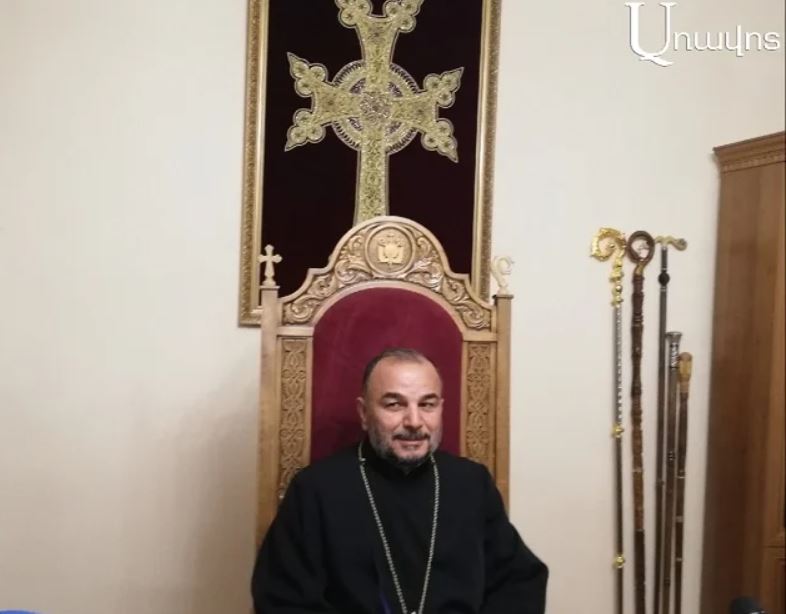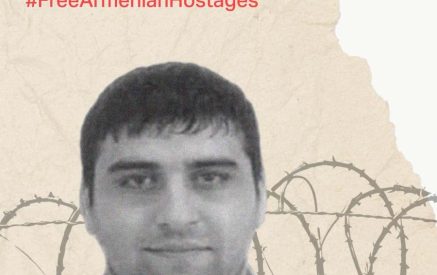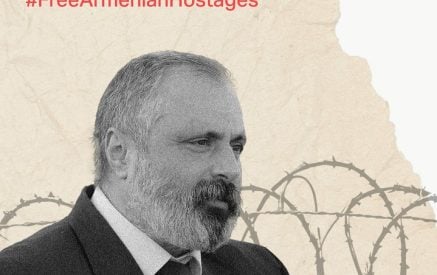There are six priests from the Armenian Apostolic Church in Dadivank today. They do not leave the territory of the monastery. They perform spiritual rites – liturgy and worship, but the believers are not present at those ceremonies. They have not been allowed to enter since May. Dadivank is located in Karvachar, which came under the control of Azerbaijan after November 9, although there were virtually no hostilities there. Karvachar and Kashatagh (Kelbajar and Lachin) were not part of the NKAO in Soviet times, they were part of the seven regions of the Azerbaijani SSR, which in 1992-1994 as a result of the war came under our control, which the Armenian side traditionally called “liberated” and the Azerbaijani side traditionally “occupied.”
Unlike the other 5 regions: Akna-Aghdam, Jrakan-Jabrayil, Kubatlu-Sanasar, Zangelan-Kovsakan, and Fizuli-Varanda, these two regions bordered Armenia, and during the negotiations, when it came to handing over the territories in 5 + 2 format, it was understood that these two regions were a link between the Armenians of Artsakh and Armenia. Today, only a thin thread in the form of the Goris-Berdzor-Stepanakert road remains. Both Berdzor, the regional center of Kashatagh, and Dadivank in Karvachar are under the control of Russian peacekeepers. On November 14, 2020, Russian peacekeepers entered Dadivank to ensure the safety of the church and clergy.
Recently, in order to cover the start of the Hakobavank restoration project, journalists in Artsakh met with the Primate of the Artsakh Diocese of the Armenian Apostolic Church, Bishop Vrtanes Abrahamyan (pictured), as well as Father Hovhannes, the priest of Dadivank. His Holiness presented the situation in Dadivank. According to him, when the Russian peacekeepers entered Dadivank on November 14, initially negotiating with the commander Muradov, who in turn agreed with the Azerbaijani side, the priests and believers would go on a pilgrimage to Dadivank once a week. The church compiled a list of pilgrims each week, the government provided transportation, and they traveled to Dadivank. Then, when the Azeris “strengthened their legs” in those areas, they wanted to see the list themselves every week, then they tried to personally check the passports of all the pilgrims, etc., and as a result, there has been no pilgrimage since May.
Read also
Six out of 19 clergymen of the Artsakh Diocese currently live and work in Dadivank. They are not imprisoned. They live there under the supervision of Russian peacekeepers. They pray and hold liturgies, but pilgrims and believers do not enter the monastery complex. Recently, according to the Azerbaijani side, about 30 Udis entered the church, prayed, and left. The priest of Dadivank, Father Hovhannes, is not able to go to Dadivank yet, because the Azeris, according to rumors, have offered him a “price” and have an order to arrest Father Hovhannes. Now he is a pastor in the churches of the Martakert region, as well as in Gandzasar, but he is sure that sooner or later he will hold a liturgy in Dadivank. And the Holy Father, Bishop Vrtanes Abrahamyan, says that they are doing everything to restore the pilgrimages to Dadivank. But the number of pilgrims must be large in order to be influential and convincing. Those who visit Artsakh from Armenia are few today; very few go to Artsakh, regardless of whether they are believers or not.
“There must be movement, people must come and go, our brothers and sisters must come from Armenia and Russia so that Russian peacekeepers and the Azeris standing in Shushi see that we are not alone, that there is movement here, that people are concerned about Artsakh, the Armenians of Artsakh, the fate of Dadivank, Amaras, Shushi, Hadrut, Stepanakert… Visits have decreased a lot, there is no movement. It affects the people of Artsakh, their psychology, and it causes pain.” Bishop Vrtanes is convinced that at least on the Artsakh issue, all the people of Armenia, the Diaspora, Artsakh, and all structures must be united. “If we are united, we will succeed. If we are divided, we will lose. Artsakh must live, it must prosper, it must be confident in its future, and that is the most important goal for all of us, all Armenians. I feel that there is a key, there is a way, there is a way out, there is a door, but we have to go that way together, we have to knock on the door together, and we have to open it together.”
Melanya Barseghyan


























































